On Monday, I spent three hours at Phuket Provincial Court, awaiting permission to temporarily regain my passport so I could present it the following day . . .
At the end of the marathon, about the same time as the drunks at the races were enjoying the deepest of slumbers, I was generously granted an extra months' stay in Thailand.
I will have to go through the ordeal all over again on December 3 and 4.
My precious passport remains the property of the Australian Government. It says so inside, in capital letters.
But the Australian Government is not prepared to fight for its rights the way that the British Government did earlier this year.
I am now forced to deal with the problems created by being on a ''criminal visa'' in Thailand because the Australian Government chooses not to speak out on the topic of media freedom here, or to demand its rights the way that the British Government has done in the case of migrant labor activist Andy Hall.
Thailand's draconian criminal defamation laws, coupled with the Computer Crimes Act, are being used against us both, along with my colleague at Phuketwan, Chutima Sidasathian.
While British envoys have won back Andy Hall's passport simply by asking the court to return it, Australia and its ambassadors in Thailand have shown a marked lack of assertiveness, to put it mildly.
The charges laid by the Royal Thai Navy against Khun Chutima and I are clearly trumped up and designed to stop Phuketwan from continuing its award-winning coverage of the exodus of the Rohingya people from Burma, through Thailand.
If Andy Hall's paid and unpaid work on behalf of migrant laborers in Thailand makes him a human rights defender and qualifies him to have his passport returned, then the non-profit-making coverage by Phuketwan of the Rohingya - the most persecuted people in the world, according to the UN - certainly puts Khun Chutima and I in a similar category.
Phuketwan took real risks in reporting the inhumane ''pushbacks'' by the Thai military in 2009 and we continue to face what amounts to a vendetta by some misguided officers in the Royal Thai Navy.
Our central philosophy is that Burma must stop pushing the stateless Rohingya into the sea, forcing them to seek sanctuary in Malaysia, Indonesia . . . and Australia.
We even thought the Australian Government might agree that what we were saying was right, that the boats should be stopped before they sail.
Apparently not.
In the 11 months since the spurious charges were laid against Phuketwan's journalists over republication of a 41-word paragraph by Reuters, a paragraph that later formed part of the news agency's Pulitzer-prize winning coverage of the Rohingya, the Australian government and its ambassadors have not mustered a single word of support in public, beyond motherhood statements.
While Andy Hall has the clear backing of the British Government and possession of his passport enables him to travel overseas with minimal problems, the journalists at Phuketwan have been left to swing.
Of course, Australian officials say, the issue ''has been raised with the Thai Government.'' But precisely who? Prime Minister Prayuth or a lowly civil servant in the Ministry of Foreign Affairs?
Whether we have the endorsement of the Australian Government or not, Phuketwan will continue to cover the human trafficking of the Rohingya and other boatpeople through Thailand, as a matter of principle.
Principle is not a horse starting in the third race on Oaks Day.
Before returning my passport to the court today, I noted the words: THIS PASSPORT REMAINS THE PROPERTY OF THE AUSTRALIAN GOVERNMENT.
In the interests of principle, it may be time those words were removed.
United Nations
''Criminal prosecution for defamation has a chilling effect on freedom of the press,'' said Ravina Shamdasani, the spokesperson for the Office of the High Commissioner for Human Rights. ''International standards are clear that imprisonment is never an appropriate penalty for defamation.''
Human Rights Watch
''The Thai navy's lawsuit is a reckless attempt to curtail journalists' reporting on alleged human trafficking by its officers,'' said Brad Adams, Asia director at Human Rights Watch. ''Unless the government withdraws the case, its impact will be felt far beyond those reporting on abuses against the Rohingya - and could have a choking effect on all investigative reporting in Thailand.''
Reporters Without Borders
"It is intolerable that journalists are being prosecuted for just doing their job by relaying information of general interest that had already been made public," Reporters Without Borders said. "Bringing charges under the controversial Computers Crimes Act in a defamation case is indicative of the critical state of freedom of information in Thailand and amounts to an attempt to gag the media. We support these journalists, who are facing a jail term, and we call for the immediate withdrawal of these proceedings."
Committee to Protect Journalists
''Rather than shooting the messenger, the Royal Thai Navy would be better suited launching an internal investigation into the serious allegations of abuse that have been raised,'' said Shawn Crispin, CPJ's senior Southeast Asia representative. ''This type of legal intimidation aims ultimately at discouraging media reporting on allegations of serious human rights abuses.''
Chris Lewa, director of the rights group the Arakan Project
''Thanks to the fair investigative reporting by the Phuketwan journalists, the involvement of various Thai agencies in the massive smuggling and trafficking operations of Rohingya refugees and their related miseries is no more a secret. Rights groups should unite to call on Thailand to quash these defamation charges.''
Phuketwan
''We wish the Royal Thai Navy would clear its reputation by explaining precisely what is happening to the Rohingya in the Andaman Sea and in Thailand,'' Phuketwan said in a statement released in response to the charges. ''By instead using a controversial law against us, the Navy is, we believe, acting out of character.''
Bangkok Post
The action makes the navy look like a bully, and gives the impression the admirals would like to intimidate the media. Instead of defending the navy's honor, the criminal defamation suit holds it to question. Instead of silencing the media about the story - concerning the navy's role in the mistreatment of Rohingya boatpeople - the lawsuit repeats it, to more people and at greater length.
CNN
Morison said: "The navy's action over one paragraph has created a perfect storm. If the navy proceeds with the case, the Rohingya issue is now tied up in their action against media under a controversial
law."
TIME
In the meantime, calmer seas mean that even more Rohingya are expected to attempt the treacherous journey in the weeks ahead. Nothing could gladden the traffickers more.
Reuters
Barb Burg, Reuters' (former) global head of communications: ''Our story was fair and balanced and Reuters has not been accused of criminal libel.''
Bill Barnett (The Phuket Insider)
The issues which have drawn Phuketwan into this fray are profound and disturbing. There should be no need to wax over reality and respect needs to be given to those who stand up for the helpless who cannot help themselves.
Andrew Drummond (Investigative Journalist)
We should all support journalists who are doing a difficult job here
under laws which best suit a totalitarian state.
Excellence in Human Rights Reporting, Investigative Reporting awards
In 2010 the Phuketwan team shared the Society of Publishers in Asia Award for Excellence in Investigative Reporting and a second Award for Excellence in Human Rights Reporting, both with the South China Morning Post newspaper. Judges said of the Excellence in Investigative Reporting award: ''An excellent series that uncovered serious government abuses and had a material impact in correcting them. Exclusivity. Strong reporting. Hard-hitting piece with international implications.''
Of the Excellence in Human Rights Reporting award, the judges said: ''Excellent investigative work that exposed serious human rights abuses of oppressed people. Intrepid reporting of a hidden subject. This is a high-caliber series buttressed by solid on-the-ground reporting and great pictures. All militaries are challenging subjects for investigative reporters and Thailand's is no exception. The team clearly went to great lengths to get sources, break news, and provide the details that prodded the government into action.''

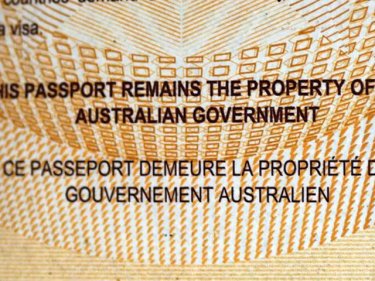

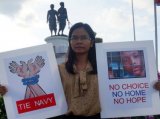
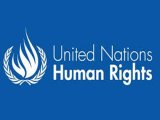
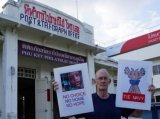
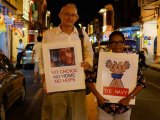




How can we (readers) concretely support you? Any idea or suggestions?
Posted by Sam on November 6, 2014 17:46
Editor Comment:
Not really, Sam. Maybe turn up at the trial in July.